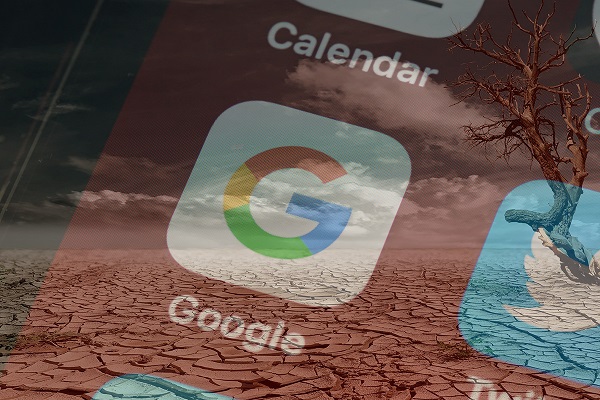EarthTalk®
From the Editors of E – The Environmental Magazine

After pressure from advertisers. Google pledged to halt the display of ads that promoted climate disinformation. But critics say that’s not enough. Credit: Pexels.com.
Dear EarthTalk: Is Google doing anything to prevent the propagation of climate disinformation on the Internet? — P. Hanson, Washington, DC
The advent of the internet and smartphone innovations have brought information to our fingertips. As the number of users skyrockets, advertisers have identified lucrative opportunities to meet people where they are. Google is a household name, holding 87 percent of the market share and hosting billions of users.
Polls of Google users show that they trust that it produces credible search results. Seventy-three percent of users believe that most or all of the information they find in a search is accurate and trustworthy; however, 68 percent of users were unable to identify the difference between an ad and an organic search result.
This gives a leg up to potentially nefarious advertisers spreading climate disinformation.
Google addressed the problem of pervasive climate disinformation prior to the United Nations (UN) Conference of the Parties (COP) 26th annual meeting in 2021; the internet giant pledged to halt the display of ads that promoted climate disinformation. This commitment came in tandem with other advertisers pressuring Google not to display their products alongside climate disinformation.
The commitment that Google made has come under fire as there are questions about the legitimacy of their pledge. Michael Koo, co-chair of the climate change disinformation coalition at Friends of the Earth, stated, “It appears Google is spreading disinformation about its efforts to fight disinformation”.
In the span of two years, Google has accepted nearly $24 million in advertisements from oil giants. Of that $24 million, $10.9 million was spent on greenwashing ads that were seen 58.6 million times, according to the Center for Countering Digital Hate (CCDH).
These ads were targeted to key-word searches including: greenhouse gases, renewable energy and information about “eco-friendly” companies. Additionally, since their pledge, Google has accepted $421,000 for ads from climate denial groups with taglines like “climate campaigners hype the risks of global warming,” and “fossil fuels make the planet safer”.
CCDH has outlined steps that Google needs to take to actualize the claims they’ve made on their stance on climate disinformation.
Step one would be to halt climate denial ads and ads promoting greenwashing. Additionally, CCDH suggests that Google introduce a transparent library of their advertisements so that the public can examine how ads are being placed and how they may distort search results.
Lastly, CCDH suggests that a legislative framework be established to ensure the transparency, accountability and responsibility of not only Google, but all online platforms.
These recommendations are a good starting point, but there is no guarantee that Google will follow them. That being said, users should be armed with skills to identify climate disinformation. Common tactics that proponents of climate disinformation utilize are: false expertise, logical fallacies, impossible expectations, conspiracy theories and cherry-picked data.
The best way to combat these tactics is to be a cautious consumer of online information. Be prepared to vet the source of the information that you find, and get in the habit of developing a mixed-news diet.
CONTACTS:
How to Spot Climate Misinformation, nrdc.org/stories/how-spot-and-help-stop-climate-misinformation
Greenwashing on Google – Full Report, counterhate.com/wp-content/uploads/2022/11/Greenwashing-on-Google_Final-Report.pdf
Big Oil Greenwashing with Google Ads, context.news/climate-risks/gaming-google-oil-firms-use-search-ads-to-greenwash-study-says
EarthTalk® is produced by Roddy Scheer & Doug Moss for the 501(c)3 nonprofit EarthTalk.
See more at https://emagazine.com
To donate, visit https//earthtalk.org
Send questions to: question@earthtalk.org
